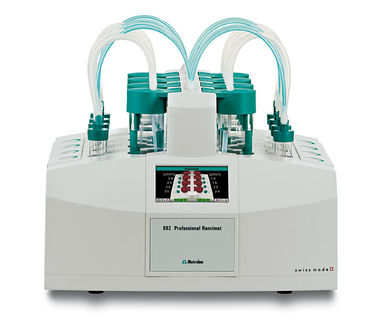To use all functions of this page, please activate cookies in your browser.
my.chemeurope.com
With an accout for my.chemeurope.com you can always see everything at a glance – and you can configure your own website and individual newsletter.
- My watch list
- My saved searches
- My saved topics
- My newsletter
Ralph Merkle
Ralph C. Merkle (born February 2, 1952) is a pioneer in public key cryptography, and more recently a researcher and speaker on molecular nanotechnology and cryonics. Merkle appears in the science fiction novel The Diamond Age, as one of the heroes of the world where nanotechnology is ubiquitous. Product highlightBiographyMerkle graduated from Livermore High School in 1970 and proceeded to study Computer Science at the University of California, Berkeley, obtaining his B.A. in 1974, and his M.S. in 1977. In 1979, he was awarded a Ph.D. in Electrical Engineering at Stanford University, with a thesis titled Secrecy, authentication and public key systems. He was a distinguished professor in the College of Computing at the Georgia Institute of Technology.[1] Ralph Merkle is the great grandnephew of baseball star Fred Merkle, the son of Theodore Charles Merkle, a contralador of the Project Pluto and the brother of Judith Merkle Riley, a historical writer. In addition to his work at Georgia Tech, Merkle is also a director of the Alcor Life Extension Foundation, of Arizona. In industry, Ralph C. Merkle was the manager of compiler development at Elxsi from 1980. In 1988, he became a research scientist at Xerox PARC, until 1999. Subsequently he worked as a nanotechnology theorist for Zyvex, returning to academia in 2003 as a Distinguished Professor at Georgia Tech.[1] Whitfield Diffie has described Merkle as "possibly the single most inventive character in the public-key saga." Merkle devised an early scheme for communication over an insecure channel: Merkle's Puzzles. He also co-invented the Merkle-Hellman public key cryptosystem, the Merkle-Damgård construction, and invented Merkle trees. While at Xerox PARC, Merkle designed the Khufu and Khafre block ciphers, and the Snefru hash function. NotesReferences
|
||||||||||||||
| This article is licensed under the GNU Free Documentation License. It uses material from the Wikipedia article "Ralph_Merkle". A list of authors is available in Wikipedia. | ||||||||||||||







